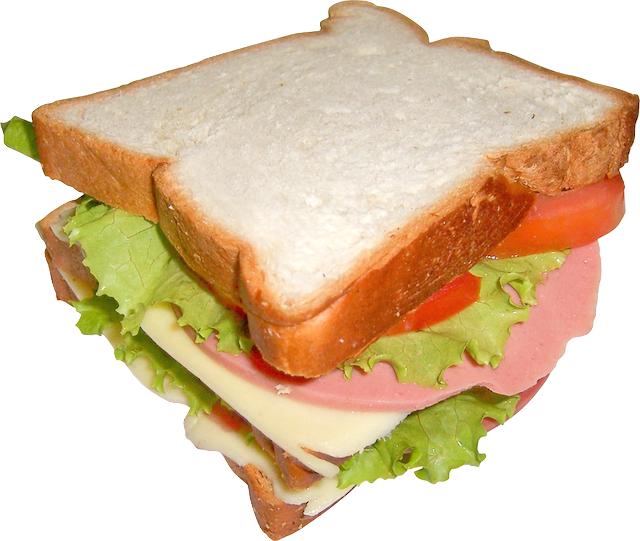How To Increase Iron Level Quickly
Iron is a vital nutrient that plays a significant role in many bodily functions, particularly in maintaining cognitive health. Low iron levels can lead to a range of health issues, including impaired cognitive function. In this article, we will explore the importance of iron for brain health, identify signs of deficiency, and provide actionable strategies on how to increase iron levels to enhance cognitive function.
Importance of knowing hot to increase iron level for cognitive function
Iron is crucial for numerous physiological processes, including the production of hemoglobin, the protein in red blood cells responsible for transporting oxygen throughout the body. Adequate oxygen supply is essential for the brain, as it consumes approximately 20% of the body’s oxygen supply. Iron also plays a role in synthesizing neurotransmitters, such as dopamine and serotonin, which are critical for mood regulation, learning, and memory. Therefore, knowing how to increase iron level is fundamental for optimal cognitive function.
How iron deficiency affects cognitive function
When iron levels drop, the brain is often one of the first organs to be affected. Symptoms of iron deficiency may include:
-
-
- Fatigue: Low iron can lead to reduced energy levels, making it difficult to concentrate.
- Impaired memory: Iron deficiency can affect both short-term and long-term memory, impacting learning capabilities.
- Mood changes: Lack of iron can lead to irritability, anxiety, and depression, all of which negatively impact cognitive function.
- Reduced attention span: Difficulty in focusing on tasks can be a direct consequence of low iron levels.
-
Understanding the connection between iron levels and cognitive function highlights the importance of maintaining adequate iron intake.
Identifying iron deficiency
Recognizing the signs of iron deficiency is crucial for early intervention. Symptoms can vary from mild to severe and may include:
-
-
- Fatigue or weakness
- Pale skin
- Shortness of breath
- Dizziness or lightheadedness
- Cold hands and feet
- Brittle nails
-
If you suspect low iron levels, it is essential to consult a healthcare professional for a blood test. Common tests include a complete blood count (CBC) and ferritin levels, which can help assess your iron status.
Dietary sources of iron
Increasing iron levels begins with understanding where to find iron in your diet. There are two primary forms of dietary iron: heme iron and non-heme iron.
Heme iron
Heme iron is found in animal products and is more readily absorbed by the body. Major sources include:
-
-
-
- Red meat: Beef and lamb are rich in heme iron, making them excellent choices for those looking to boost their intake.
- Poultry: Chicken and turkey also provide good amounts of heme iron.
- Fish and seafood: Fish such as salmon and tuna are not only rich in omega-3 fatty acids but also contain heme iron.
-
-
Non-heme iron
Non-heme iron is found in plant-based foods and is less efficiently absorbed. However, it is still important for those on vegetarian or vegan diets. Key sources include:
-
-
-
- Legumes: Lentils, chickpeas, and beans are excellent options.
- Dark leafy greens: Spinach, kale, and Swiss chard are rich in non-heme iron.
- Nuts and seeds: Pumpkin seeds, cashews, and almonds are good snacks that provide non-heme iron.
- Fortified foods: Many cereals and bread products are fortified with iron, making them easily accessible sources.
-
-
Enhancing iron absorption
While increasing iron intake is crucial, it’s equally important to ensure that the body absorbs it efficiently. Here are strategies to enhance iron absorption:
Combine iron sources with Vitamin C
Vitamin C significantly enhances the absorption of non-heme iron. Consuming vitamin C-rich foods alongside iron-rich meals can maximize iron uptake. Consider pairing:
-
-
-
- Spinach salad: Top with citrus fruits like oranges or strawberries.
- Stir-fried vegetables: Add bell peppers to a dish with lentils or beans.
-
-
Cooking techniques
Using cast iron cookware can increase the iron content of foods, particularly acidic ones like tomato sauce. Additionally, soaking and sprouting legumes and grains can reduce phytate levels, which inhibit iron absorption.
Be mindful of inhibitors
Certain substances can inhibit iron absorption, and being aware of these can help improve your iron status:
-
-
-
- Calcium: While important for bone health, calcium can interfere with iron absorption. Try to consume calcium-rich foods separately from iron sources.
- Tannins: Found in tea and coffee, tannins can inhibit iron absorption. Limit consumption during meals; instead, enjoy these beverages between meals.
- Phytates: Present in whole grains and legumes, phytates can bind to iron and reduce absorption. Cooking methods like soaking and fermenting can help mitigate this effect.
-
-
Iron supplements: When and how to use them
If dietary changes alone are not sufficient to increase iron levels, supplements may be necessary. However, it’s essential to approach supplementation carefully:
Consult a healthcare professional
Always consult with a healthcare provider before starting iron supplements. They can recommend the appropriate dosage based on your individual needs and iron levels.
Choose the right form
Iron supplements come in various forms, including ferrous sulfate, ferrous gluconate, and ferrous fumarate. Ferrous sulfate is commonly recommended due to its effectiveness and availability. However, some individuals may experience gastrointestinal side effects. If this occurs, speak with your healthcare provider about alternatives.
Monitor your levels
Regularly monitoring your iron levels through blood tests can help you assess the effectiveness of supplementation and dietary changes. This will allow you to make informed decisions about your iron intake.
Lifestyle changes to support healthy iron levels
In addition to dietary strategies, several lifestyle changes can help improve and maintain healthy iron levels.
Stay hydrated
Proper hydration is essential for overall health and can aid in nutrient absorption. Drinking adequate water supports digestion and helps transport nutrients throughout the body.
Engage in regular physical activity
Regular exercise enhances blood circulation and promotes overall health. Physical activity can improve oxygen delivery to tissues, including the brain, supporting cognitive function.
Manage stress
Chronic stress can negatively impact overall health, including nutrient absorption. Incorporating stress management techniques such as mindfulness, yoga, or meditation can promote better health and potentially improve iron levels.
Limit alcohol consumption
Excessive alcohol can interfere with nutrient absorption and overall health. Limiting alcohol intake can help maintain healthy iron levels and improve cognitive function.
Monitoring cognitive function
As you implement strategies to increase your iron levels, monitoring your cognitive function can provide valuable feedback on your progress. Here are some tips to help track changes:
Keep a journal
Maintain a journal to document any changes in energy levels, concentration, memory, and mood. Note any dietary changes and their effects on your cognitive abilities.
Set cognitive goals
Establish specific cognitive goals, such as improving focus during work or enhancing memory for daily tasks. Regularly assess your progress and adjust your strategies as needed.
Seek professional guidance
Consider consulting a healthcare professional or a registered dietitian for personalized advice and support. They can help you create a tailored plan that addresses your iron levels and cognitive health.
Conclusion
Increasing iron levels is vital for enhancing cognitive function and overall health. By understanding the importance of iron, recognizing the signs of deficiency, and implementing dietary and lifestyle strategies, you can effectively manage your iron intake and support your brain health.
Take action for better cognitive health
Being proactive about your iron levels can lead to significant improvements in energy, mood, and cognitive abilities. Start today by incorporating iron-rich foods into your diet, combining them with vitamin C, and making lifestyle adjustments to support better absorption.
Consult healthcare professionals for personalized guidance, and monitor your progress as you implement these strategies. By prioritizing iron levels, you can enhance your cognitive function and enjoy a more vibrant, fulfilling life.



